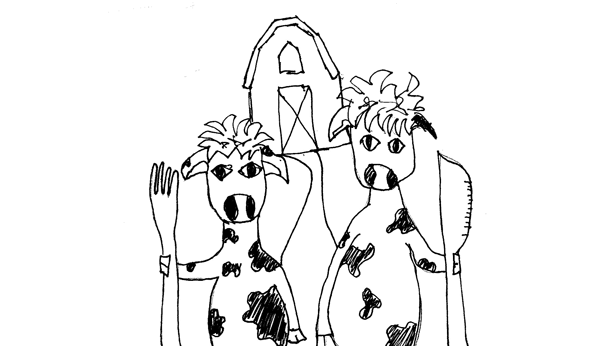Navigating Food Marketing in the CSR Generation
 Illustration by Kelly Grevers
Illustration by Kelly Grevers
Organic, sustainable, natural, green eco-friendly, locavore, omnivore, vegetarian, pescetarian, vegan, freegans (eww!) and raw foodists. These are just some of the many terms that are bandied around when we are talking about food in the post-Inconvenient Truth era. I use Al Gore’s documentary as the benchmark for this discussion not because this is when these terms were first used, nor even when many of them became popular, but you certainly would not have seen them used in the cereal aisle pre-2006. This is the point at which many of these terms first arose, and also the point at which others overnight made the switch from mere descriptive terms to what they are today: marketing tools.
You may scoff at the idea that your particular brand of ideology is being referred to as a marketing tool, but that’s what it is, and you needn’t be bothered by it. These fast moving memes represent certain ideas and perceptions in your mind, which gives them value to branders and marketers alike. What we should be concerned about is that it is becoming increasingly difficult to discern what is legitimately environmentally or ethically sound, and what is simply masquerading as such. That’s where I come in.
First of all, be wary of anything that says organic on it. Not that you shouldn’t be buying organic whenever you can (you should), just know that very often it is not all it’s cracked up to be. Organic agriculture is now industrial, and large scale producers have been attracted by the high prices that it can command at retail. The result is that we end up with a lot of food that – to quote Mark Bittman – may be organic in letter, but is certainly not organic in spirit. Take a look at where the organic produce in grocery stores comes from: Argentina, Chile, New Zealand, South Africa, and other faraway places where remain disconnected with our food source and from its means of production.
Many people are drawn to organics because, unlike other claims, they have to be certified organic to be sold in stores. However, certifying bodies are many and usually non-government, so we still don’t really know what we are getting. Are our organic chickens free range? Are our salmon fished sustainably? Are they fed a natural diet? How are my tomatoes packaged and shipped? These are all issues that should be addressed by certification programs, but often are not.
Unfortunately, nearly all other terms being used to market ethical or sustainable foods are unregulated, and thus are pretty much meaningless. Even “local,” which seems relatively self-explanatory, is up for debate, and all too often abused. For example, a recent Hellman’s Mayonnaise commercial boasted “local” ingredients, including canola oil from the Prairies. Seems fair, right? After all, it’s all Canada. Of course, it is all too easy to forget that from Toronto, Saskatchewan is nearly as far as Mexico, and that doesn’t even account for where the product was shipped to be processed and packaged.
So amidst all this confusion and deception, how are eco or ethically minded people supposed to cope? In short, ignore the labels and latest marketing memes. Instead, start by developing a relationship with your food. Learn what goes into it by learning to cook, doing it often and from scratch. Appreciate the flavours that are found only in fresh, seasonal ingredients, and work them into your recipes. It may take you a while to develop a culinary repertoire, but once you do, you will never want to go back to processed foods.
If you are ethically minded, be sure to ask yourself some tough questions about what you are willing to vote for with your food dollars, and what you are not. Determine your priorities and seek transparency relentlessly. Often that means trying to buy organic or local, but not simply trusting the little label on the box. Talk to your local farmers and ask questions. If they are committed to framing ethically and sustainably, they will be more than happy to answer questions. This is especially true if you are interested in sustainable farming, as many farmers just don’t bother with the expensive and time consuming process of getting certified organic, even though their operation may exceed the qualifications.
Lastly, if you can, be vegetarian. If not, examine the place that meat plays in your and life and whether that fits with your world view. If you can’t go cold turkey (couldn’t help it) try cutting down on your consumption. Consider that half of the world’s antibiotics are given to animals, and when we eat them, those drugs build up in our system. Ponder on the fact that more greenhouse gasses are produced from livestock production than transportation, and that rainforests in Brazil are being plowed to accommodate for even more demand. Meditate about how we could feed the world if we weren’t wasting valuable land resources on low yield foods like meat, and that the push to maximize that yield encourages the outbreak and spread of potentially deadly diseases like avian flu and H1N1. Finally, think, about all the ways just changing your diet can make the world a better place.
Be informed, use judgment, and never be afraid to ask questions.
Please Eat Responsibly.